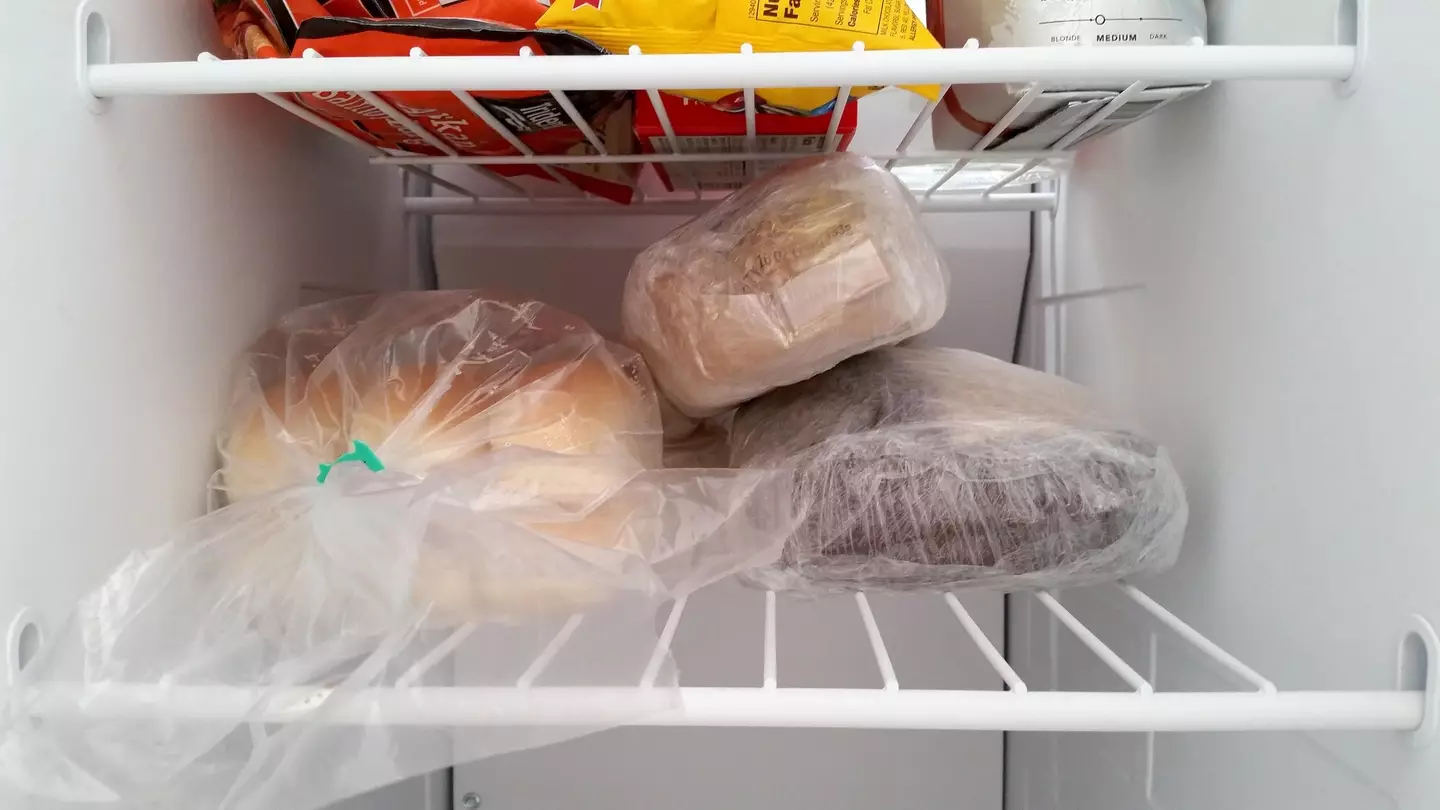
When it comes to proper food storage, it’s surprisingly idiosyncratic.
Some people reckon apples live in the fridge, others reckon mayonnaise is a cupboard item, and there are probably come freaks out there keeping their ketchup in the sink, all likely without having given much consideration as to whether they’re doing it ‘right’.
Experts love to weigh in on these debates. Here at FOODBible we’ve already educated our discerning readers on why peppers fare better in the cupboard, why olive oil shouldn’t be left on your countertop, and why you might want to consider keeping your eggs in the cupboard over the fridge.
And now, thanks to wildly popular bread manufacturer Warburtons, we can share the best place to store your loaves.
Advert

Options include: the cupboard, the fridge, and the freezer. Considering how quickly a load of bread can start sprouting little green spores, many of us who don’t tear through the stuff like we’re feeding the 5,000 are already going for the latter.
Yes, it means defrosting your bread or toasting it before tucking in, but those are small prices to pay for bread that hasn’t gone mouldy two days after you bought it.
Anyway, that’s enough from this layperson; what does Warburtons have to say?
For one, the fridge is not the way to go. As with cakes, the low temperatures might prevent your bread from getting mouldy before its time, but the cold also makes it go stale more quickly.
"We recommend storing our products in a cool place, away from light and heat sources. Refrigerating bread products can cause the product to stale quicker," says Warburtons on its website.
Expanding on this advice, Warburtons’ head of nutrition, Jill Charlton, shared some extra considerations around bread storage.
"Warburtons always advises checking the Best Before date, which appears on a yellow sticker on wax-wrapped bread or, if in a bag, on the plastic necktie,” said Charlton, presumably to cater to those of you experiencing your first day on Earth.
She continued: "Bread can still be eaten after the Best Before date, although it may not be at its best quality.
"Consumers should always check for any mould before consuming."
How… illuminating. Thanks, Jill!

Anyway, with that out of the way, where does Warburtons recommend keeping your bread if not in the fridge?
The answer, per the experts at Warburtons, is to freeze it. Turns out this layperson was bang on the money after all.
Not only does freezing bread significantly slow the spoilage rate, it also maintains its quality in a way that simple refrigeration doesn’t. Warburtons did, however, note that bread is best consumed within three months of freezing it.
